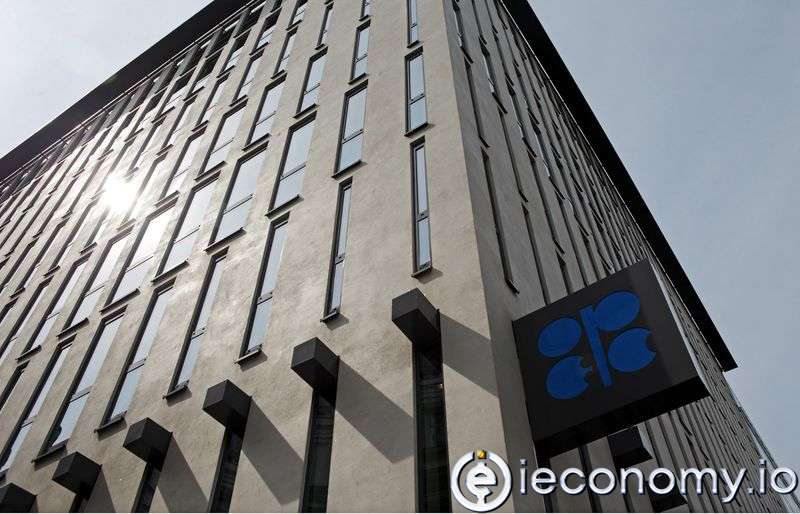4567
0
OPEC+ agrees on a small cut in oil production
OPEC and its allies led by Russia agreed on Monday on a small oil production cut to support falling prices amid fears of an economic slowdown.

Yazar: Charles Porter
Yayınlanma: 6 Eylül 2022 06:34
Güncellenme: 3 Mart 2026 17:48
OPEC+ agrees on a small cut in oil production
OPEC and its allies led by Russia agreed on Monday on a small oil production cut to support falling prices amid fears of an economic slowdown.
Oil producers will cut output by 100,000 barrels per day (bpd) for October, equivalent to just 0.1% of global demand. They also agreed that OPEC leader Saudi Arabia could call an extraordinary meeting at any time if the volatility continues. The decision essentially maintains the status quo as OPEC observes sharp fluctuations in oil prices. "OPEC+ is wary of prolonged price volatility stemming from weak macro sentiment, poor liquidity and renewed Chinese lockdowns, as well as uncertainty over a potential US-Iran deal and Russian efforts to establish an oil price cap," said Matthew Holland of Energy Aspects. OPEC's top producer Saudi Arabia last month signaled the possibility of production cuts to address what it sees as exaggerated oil price movements. Benchmark Brent crude has fallen as low as $95 a barrel, down from $120 in June, on fears of an economic slowdown and recession in the West. Russian Deputy Prime Minister Alexander Novak said on Monday that OPEC+'s oil output cut was merely a reflection of the expectation that global economic growth would weaken. Oil prices were also dragged down by the potential supply boost from the return of Iranian crude to the market if Tehran can revive its 2015 nuclear deal with global powers. "It seems that from a political point of view, there is a message from the Saudis to the US about reviving the Iran nuclear deal... It's hard to interpret this decision as anything other than price supportive," said Tamas Varga of oil broker PVM. While Iran is expected to increase supply by 1 million bpd, or 1% of global demand, if sanctions are eased, the prospects for a nuclear deal looked less clear on Friday. The White House said on Monday that US President Joe Biden is committed to taking all necessary steps to support energy supplies and lower prices. "The cut shows that there is a desire to defend oil prices to stay above $90 a barrel," said Giovanni Staunovo of UBS. Raad AlKadiri of Eurasia Group said: "This is a signal of intent ... "The decision to cut reinforces the message 'don't underestimate us' without doing anything serious." Follow Global Economic Developments on Social Media! Click here to follow Ieconomy official Facebook account! Click here to follow Ieconomy official Instagram account! Click here to follow Ieconomy official Twitter account!İLGİLİ HABERLER





European stocks soared and focus shifted to German retail sales after Powell's speech!

Forex Signal For TRY/USD: Inflation Slowdown in November.

Forex Signal For GBP/USD: Bullish Trend Still Not Breaking While Recovery Continues.

Forex Signal For EUR/USD: Starry US Data Points to Higher Fed Increases.

Forex Signal For BTC/USD: Downside Continues as Bitcoin Recovery Moves Less.
En Popüler Haberler
Yorum Yap
Yorumlar
Henüz yorum yapan yok! İlk yorumu siz yapın...